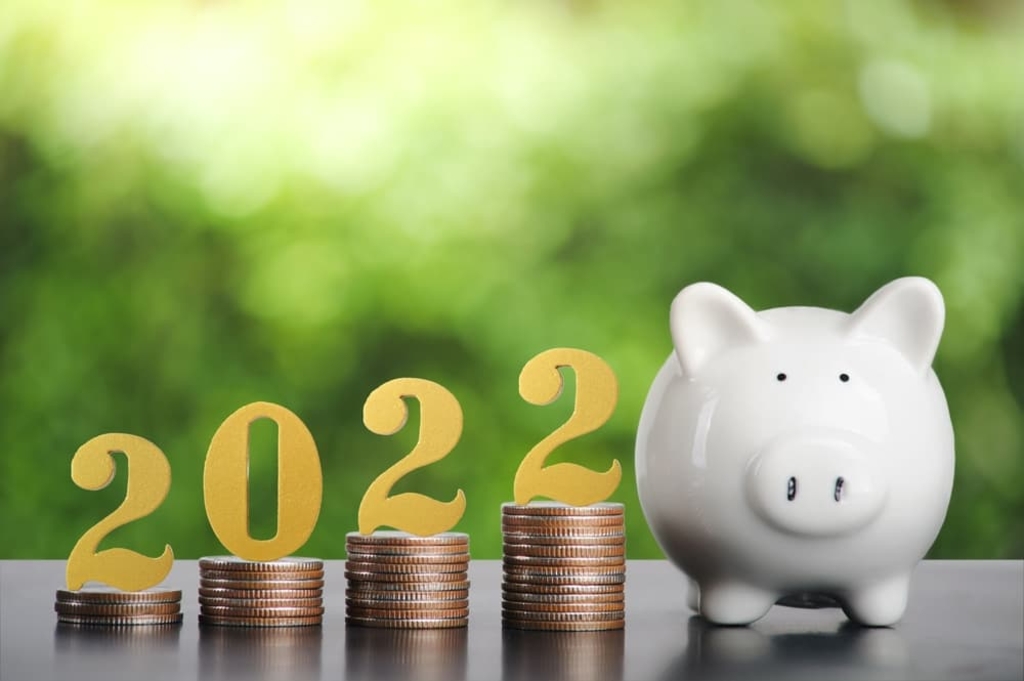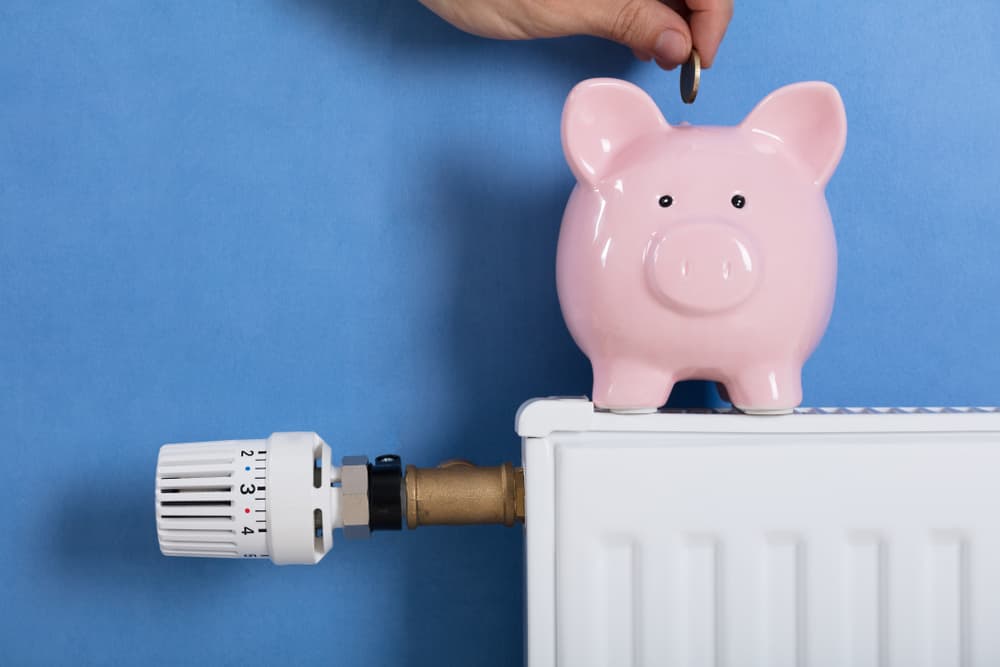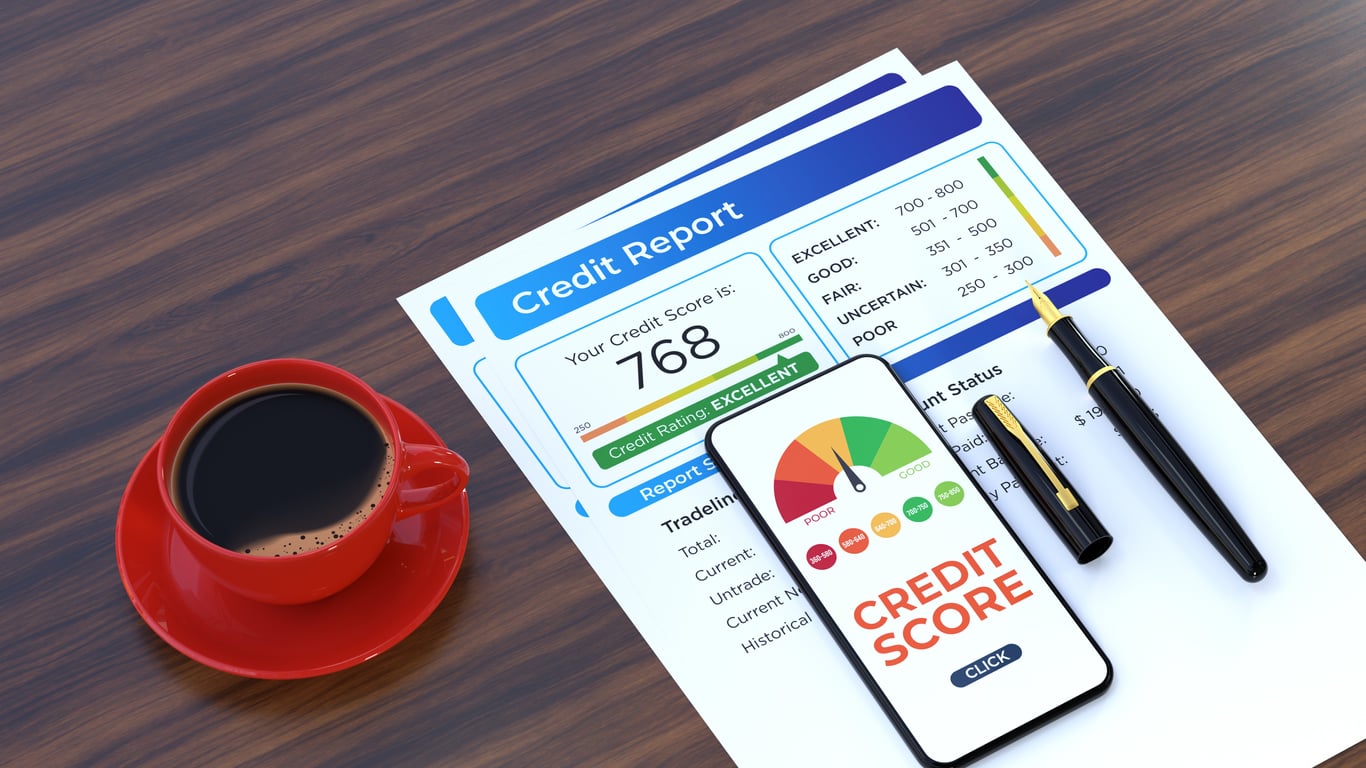9 Financial Tips That’ll Save You Money in 2022

There’s no denying that 2021 was a strange year, but instead of making the usual New Year’s resolutions, why not figure out your finances instead? Don’t promise yourself that you’ll start working out at the gym, grow your emergency fund instead. Thinking of quitting chocolate? Nope, you should learn how to invest. Here are 9 financial tips that will save you money in 2022.
1. Invest Your Savings Instead of Paying Off Your Student Loans Quickly
If you’ve been considering paying off your student loan debt as soon as possible, you need to know that there is a way to use your debt as leverage to build more wealth than you could without it.
We’re not saying that you should stop making your regular loan payments, definitely don’t. But, if you’re thinking of throwing down extra money to pay those debts back, think again. This money could be used for your emergency fund, a down payment on a house, or a car.
Or, you could invest it?
Investing does come with risks, but generally, the returns far outweigh the risks. You’d also have money on hand that you can access in case of an emergency situation. Paying off your student loans doesn’t provide you with that same type of security.
2. Start Saving for Retirement Now
If you’ve been putting retirement saving off, you need to learn about exactly what you’re missing out on – compound interest. By the age of 30, you should aim to have a year’s salary already saved up.
Does your employer offer a company match scheme on your retirement fund? If yes, start saving right now. For example, if you earn $30,000 per year and put 6% of your salary into your 401k, your employer will match that by 3%. By the age of 30, you’ll already have $40,000 in savings.
3. Stop Being Scared of Credit Cards
There are tons of benefits to credit cards – as long as you treat them right. It’s also important to start building your credit as early as possible, your credit score will either be a help or hindrance when you buy a car or rent an apartment.
If you need to repair or build your credit, use a secured credit card without an annual fee. While you might want to stick to your debit card in order to feel safe, it won’t help you build credit and you’ll be depriving yourself of rewards that you can take full advantage of. Instead of worrying about debt, use Debitize which lets you access all the benefits of a credit card with the control of a debit card.
4. It Doesn’t Really Matter Which Rewards Card You Choose
Now that you are ready to embrace credit cards, you’re probably wondering which is the best one for you to choose. It actually doesn’t matter that much, as the cards you’ll be eligible for will have very similar rewards over the course of a year. For example, those that offer a large sign-up bonus will offer fewer rewards and vice-versa. If you’ve already got a Bank of America checking account, it makes sense to choose one of their credit cards as you are already a part of that bank.
5. Where You Live Affects How Much Money You Can Save
If you are trying to save money, where you live really affects your bank balance. For example, South Bend, Indiana is one of America’s best cities to get rich. The average income (with a bachelor’s degree) is $71,829 and the average rent is just $720. That’s a lot of spare income. While South Bend might not exactly be New York, it could be a great place for those who want to live large in a smaller city.
6. Your House Isn’t an ‘Investment’
Lots of homeowners consider that their houses are investments, but that’s not really true. It’s just something that they tell themselves so that they can justify the large down payment. Real investments actually come in the form of stocks, bonds, and real estate (that you don’t live in). Your home isn’t something that you’d be willing to risk on the stock market, so unless you flip houses for a living, your house isn’t an investment.
7. Go Easy with Auto-Financing
Just like your home, your car isn’t really an investment either. Once a brand-new car is driven off the lot, its value will plummet. It’s unlikely that you’ll sell your car for more than you bought it, so don’t buy one that you can’t afford. Pay cash if possible, but if you need to get a loan - follow these rules:
- Pay down 20% to avoid long loan terms.
- Know your credit score and how it’ll impact you before you go to the dealers.
- If your credit score isn’t that good, get financing from a credit union instead of a car dealer.
8. Don’t Buy an Engagement Ring Through Jewelry Store Financing
You might be so excited about getting engaged that aren’t too worried about how you are paying for the ring. Yes, the jewelry store finance plan rate is 0%, but once the promotional period ends, the interest rate will skyrocket.
If you can pay off the ring within 12 months, it makes sense to buy it on a credit card with a 0% introductory rate. But, if it’ll take longer than a year, consider taking out a personal loan instead. This might seem costlier initially, but over time it’ll work out cheaper than credit cards.
9. Get a Side-Hustle
Side-hustles are the best way to make some easy extra cash. If you want to save more money, the best way is to earn more. Tons of people already drive for Uber and Lyft, and we’ve heard it’s a pretty well-paid and flexible job.
Working for Lyft, some drivers report that they earn $35 per hour, and they often have large cash bonuses (as much as $300) for new drivers. If you already have a car, this can be the perfect way to earn some extra money.







